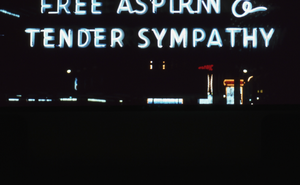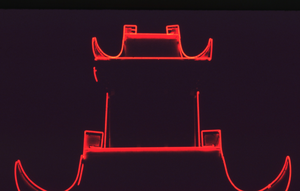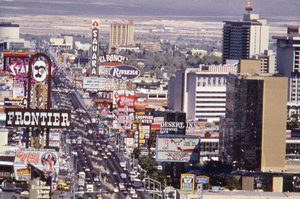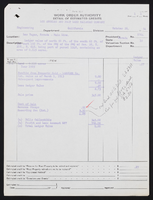Search the Special Collections and Archives Portal
Search Results

Hot Dog stand lettering sign, Las Vegas, Nevada: photographic print
Date
1986
Archival Collection
Description
Detail show of the sign for a hot dog stand with lit neon.
Image

The Travel Lodge Bear wall mounted sign, Las Vegas, Nevada: photographic print
Date
1986
Archival Collection
Description
Detail shot of the Travel Lodge Bear with lit neon.
Image

Drug store lettering sign, Las Vegas, Nevada: photographic print
Date
1986
Archival Collection
Description
Sign lit neon for a drug store that reads "Free Aspirin & Tender Sympathy."
Image

Black Jack sign, Las Vegas, Nevada: photographic print
Date
1986
Archival Collection
Description
Black Jack sign detail with lit neon.
Image

Chinese restaurant outline, Las Vegas, Nevada: photographic print
Date
1986
Archival Collection
Description
Exterior view of the lit neon outlining of a Chinese restaurant.
Image

Neon detail, Las Vegas, Nevada: photographic print
Date
1986
Archival Collection
Description
Detail shot of lit neon.
Image

View of the Las Vegas Strip, Las Vegas, Nevada: photographic print
Date
1980 (year approximate) to 1989 (year approximate)
Archival Collection
Description
Day and nighttime views of The Strip.
Image
Pagination
Refine my results
Content Type
Creator or Contributor
Subject
Archival Collection
Digital Project
Resource Type
Year
Material Type
Place
Language
Records Classification



